 Competition is a wonderful thing. A case in point is the enormous difference Charter Spectrum charges new customers in areas where competition exists, and where it does not.
Competition is a wonderful thing. A case in point is the enormous difference Charter Spectrum charges new customers in areas where competition exists, and where it does not.
Charter’s offers are address sensitive. The cable company knows its competition and almost exactly where those competitors offer service. That is why the company asks for your service address before it quotes you pricing.
Stop the Cap! compared promotional new customer offers in the metro Rochester, N.Y. market where Spectrum faces token competition from Frontier’s slow speed DSL service. Then we checked pricing in neighborhoods where a fiber to the home overbuilder called Greenlight also offers service.
In neighborhoods where Spectrum enjoys a broadband monopoly, here are the offers for internet-only service available to new customers. Notice they expire after 12 months:
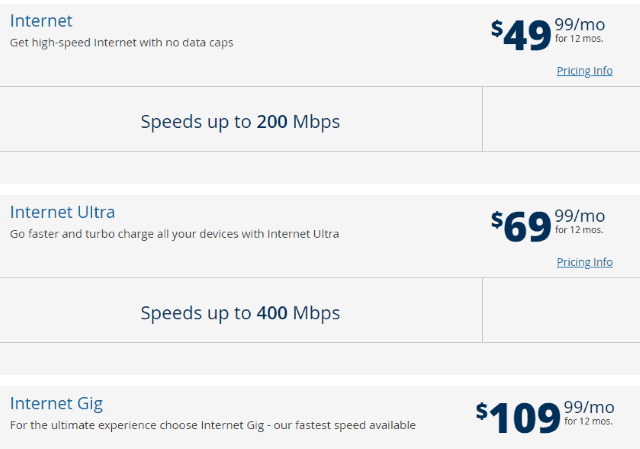
Spectrum promotional prices in non-competitive service areas.
Just one street away, where Greenlight offers customers the option of gigabit speed over a fiber to the home network, Spectrum’s promotional prices are quite different. Notice these offers last 24 months, twice as long as in non-competitive neighborhoods:
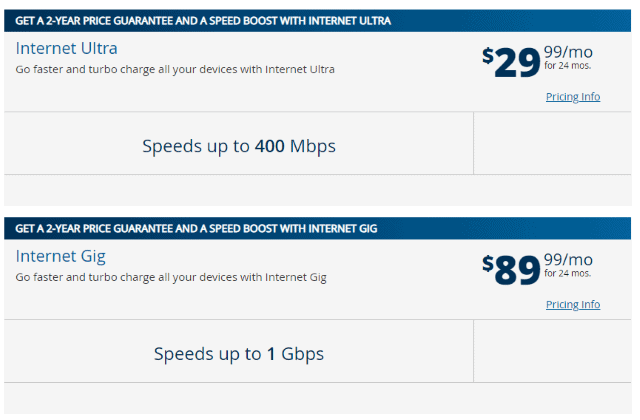
Spectrum promotional prices in some areas where customers can choose a competitor offering fiber to the home service.
Spectrum does not even bother offering new customers its entry-level 200 Mbps plan in areas where it has significant fiber competition. For $20 less per month, you get double that speed. Gigabit service is $20 less in competitive areas, too.
Spectrum charges a hefty $199.99 compulsory installation fee for gigabit service in non-competitive neighborhoods. Where fiber competition exists, sometimes just a street away, that installation fee plummets to just $49.99.
Note similar pricing variability exists in Spectrum service areas around the country, with the most aggressively priced offers reserved for addresses also served by a fiber to the home provider or multiple competitors (e.g. cable company, phone company, Google Fiber or other overbuilder). Current customers typically have to cancel existing service and sign up as a new customer to get these prices.
Greenlight Networks has four internet plans that range from $50-200 a month. They do not offer promotional prices, instead marketing “what you see is exactly what you will pay” pricing. As a relatively new company, they charge an installation fee that helps recoup the investments they are making to dig and string fiber cables in neighborhoods across Rochester (and Buffalo as well, where they are expanding). Spectrum (and its predecessors) use pre-existing cable lines that have been there for decades.
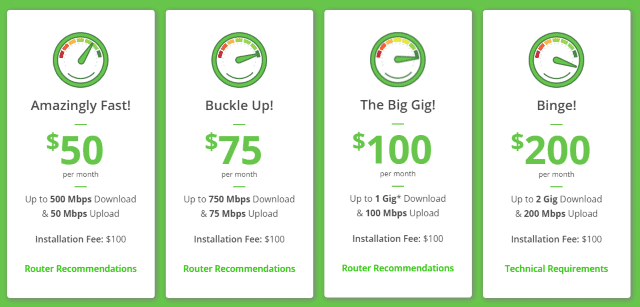
Greenlight Networks pricing
Charter’s promotion strategy is designed to undercut the competition on price, believing customers will choose 400/20 Mbps service for $29.99 a month over Greenlight’s 500/50 Mbps service for $50 a month. Of course, after two years Spectrum’s regular prices can kick in, more than tripling the cost to around $94.99 a month, although customers usually get a less attractive secondary promotion after the original one expires, usually offering around $10 off per month.
 Effective March 18, 2022 the cost of Spectrum’s “Broadcast TV Fee,” charged to cable television customers, will increase $3, reaching an unprecedented $21 a month, just to cover the carriage of local, over the air television stations. The Broadcast TV Fee was last raised to $17.99 in June 2021. The summer before that, the fee increased by nearly $3 a month as well. This means the average surcharge for local, over the air stations, is going up an average of $36 a year at Spectrum.
Effective March 18, 2022 the cost of Spectrum’s “Broadcast TV Fee,” charged to cable television customers, will increase $3, reaching an unprecedented $21 a month, just to cover the carriage of local, over the air television stations. The Broadcast TV Fee was last raised to $17.99 in June 2021. The summer before that, the fee increased by nearly $3 a month as well. This means the average surcharge for local, over the air stations, is going up an average of $36 a year at Spectrum.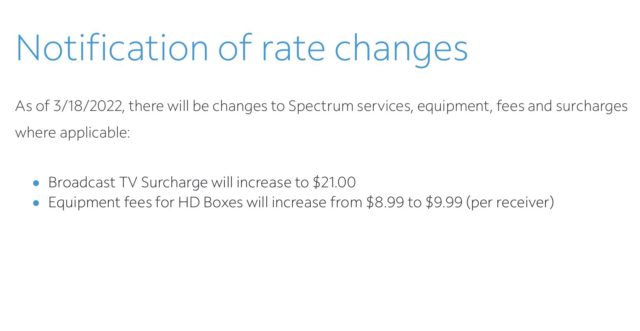


 Subscribe
Subscribe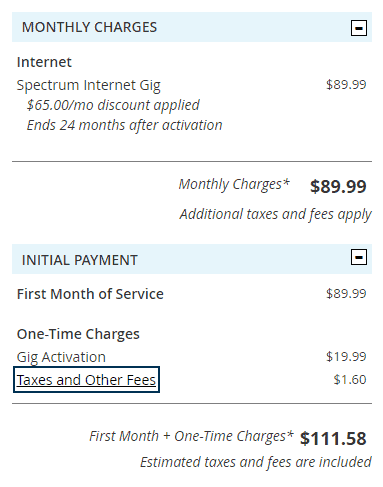

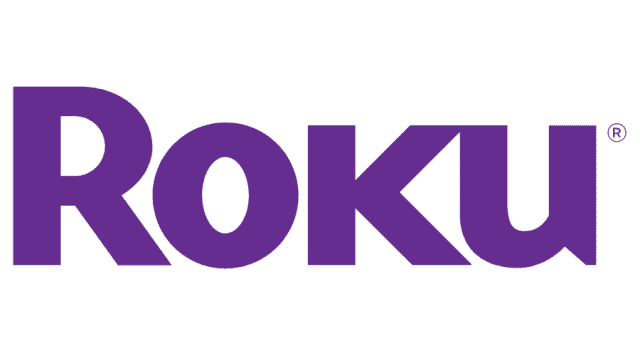 A
A 


